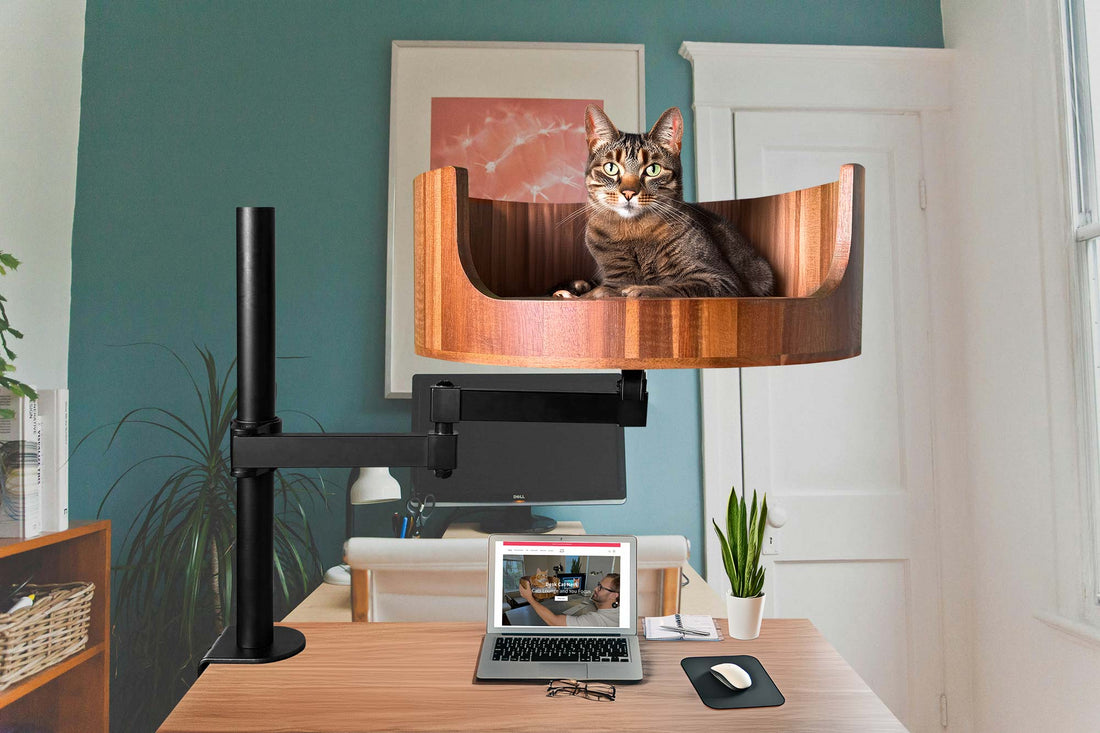
Why Does My Cat Yowl So Much? Understanding the Behavior
Share
If you have a cat that yowls incessantly, you are not alone. Many cat owners find themselves puzzled by this behavior and wonder why their feline friends are making so much noise. In this article, we will explore the reasons behind excessive yowling in cats and provide insight into understanding this common behavior.
One of the most common reasons cats yowl is due to their natural instinct to communicate. Cats use vocalizations to express a wide range of emotions, from hunger to boredom to anxiety. By understanding the different types of yowls and the situations that may trigger them, cat owners can better decipher what their furry companions are trying to communicate. Additionally, we will delve into possible medical reasons for excessive yowling, such as pain or discomfort, as well as behavioral issues that may be contributing to the vocalization. By gaining a deeper understanding of why cats yowl, pet owners can better address their cats' needs and create a happier and more harmonious home environment.
1. Cats yowl for various reasons, including illness, stress, seeking attention, or feeling territorial.
2. Understanding your cat's body language and vocal cues can help decipher the reason for excessive yowling.
3. Providing mental stimulation, regular playtime, and a consistent routine can help reduce yowling behavior.
4. Consulting with a veterinarian is crucial to rule out any underlying medical conditions causing the excessive yowling.
5. Patience, consistency, and positive reinforcement are key in addressing and modifying your cat's yowling behavior.
The 5 Main Reasons Cats Yowl
- Territorial behavior
- Attention-seeking
- Medical issues
- Stress or anxiety
- Aging-related changes
Understanding Territorial Behavior in Cats
Cats are known to be territorial animals, and yowling can be a way for them to mark their territory or communicate with other cats in the area. This behavior is more common in unneutered males, but spayed females can also exhibit territorial yowling. Providing your cat with a safe and secure environment can help reduce territorial yowling.
Attention-Seeking Yowls
Some cats may yowl excessively as a way to seek attention from their owners. This can happen when the cat is bored, lonely, or craving interaction. It's important to engage with your cat through playtime, petting, or cuddling to fulfill their social and emotional needs and reduce attention-seeking yowls.
Identifying Medical Issues
Excessive yowling in cats can also be a sign of underlying medical issues such as urinary tract infections, thyroid problems, or arthritis. If your cat's yowling behavior is out of the ordinary or accompanied by other symptoms like changes in appetite or litter box habits, it's crucial to consult a veterinarian for a proper diagnosis and treatment.
Managing Stress and Anxiety in Cats
Cats can yowl excessively when they are feeling stressed or anxious. Common stressors for cats include changes in their environment, new pets or people in the household, or loud noises. Creating a calm and predictable routine for your cat, providing hiding spots, and using pheromone diffusers can help reduce stress and yowling behavior.
Addressing Age-Related Changes
As cats age, they may experience cognitive decline, hearing loss, or other age-related changes that can contribute to increased yowling. Providing extra comfort, attention, and accommodation for their changing needs can help elderly cats feel more secure and reduce yowling behavior associated with aging.
Frequently Asked Questions
Why does my cat yowl so much?
There are several reasons why your cat may be yowling excessively. It could be due to loneliness, boredom, hunger, or seeking attention. Yowling can also be a sign of pain, illness, or cognitive dysfunction in older cats. To determine the underlying cause, it is best to consult with a veterinarian.
How can the Desk Cat Nest help with my cat's excessive yowling?
The Desk Cat Nest provides a cozy and secure space for your cat to relax and feel safe. By having their own designated space, cats are less likely to feel anxious or stressed, which can contribute to excessive yowling. The Desk Cat Nest can also help provide mental stimulation and physical activity for your cat, reducing boredom and the need to yowl for attention.
Will the Desk Cat Nest fit my cat's size?
The Desk Cat Nest is designed to accommodate cats of various sizes, from small to medium breeds. The spacious design allows cats to stretch out comfortably or curl up for a cozy nap. However, it is always recommended to check the dimensions of the Desk Cat Nest to ensure it will be suitable for your cat's size.
Can the Desk Cat Nest be easily assembled and placed on my desk?
Yes, the Desk Cat Nest is designed for easy assembly without the need for any tools. Simply follow the included instructions to set up the nest in a few simple steps. The nest can be conveniently placed on your desk or any flat surface where your cat can enjoy their own private space.
In conclusion, investing in a Desk Cat Bed is a valuable choice for cat owners wondering why their feline companion yowls so much. This comfortable and cozy bed provides a safe and soothing space for your cat to relax, reducing anxiety and stress that may lead to excessive vocalization. With its plush material and ergonomic design, the Desk Cat Bed promotes better sleep quality and overall well-being for your beloved pet. Say goodbye to constant yowling and hello to a peaceful and contented cat with the Desk Cat Bed.



















































